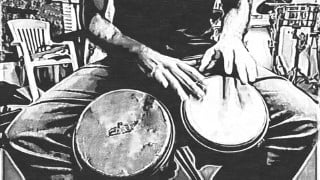Composing for Orchestra – Tips and Tricks
Gain valuable insights and tips to enhance your composition skills with this course. Learn about compositional ideas, active listening, orchestration, and more. Perfect for intermediate composers looking to improve their craft.
What you’ll learn
- Compositional ideas, methods, terminology, active listening, mindsets, orchestration tips
This course gives you an outline of some of the things you should be watching out for as a composer. Over the years, I’ve noticed that a lot of my students overlook many things that should be integral to the creation process. Some of these are simple ideas, yet easily overlooked. I want to help you to gain more insight in what to look for to help you avoid these same traps. Composition can seem like something huge to take on, but is only as difficult as you make it. I want to help change that frame of mind by offering a series of insights that will help composition, and music in general, to become something much more interesting, much simpler, and hopefully much more natural in terms of your approach to composition. I have had a long career as a music teacher, composer and musician and would like to share my ideas with you. We will look at topics such as:
How to ‘think’ like a composer
Orchestration
Vertical versus Linear Thinking
Voice Leading
Active listening
Articulation
Foreground and Background material
Dynamics
Composition maps
Composing with random notes
Examples from the repertoire
With these and other topics, I want to help you focus on the more important aspects of composition. Some of the ideas may seem abstract, but this is just to get you ‘thinking outside the box’. This course will not teach you how to compose. That’s not the purpose. Anyone with a basic idea of music theory could, theoretically, compose. The object here is to give you some insight into best practice and to try to establish your own compositional voice. Combining critical listening with score study can also help you achieve this, once you know what to listen for, and what to watch for in the score. There are some quite technical details in the course, but I deliberately try to avoid these where possible. There are many courses that can teach this and many, many books on the subject. This course is more about using the tools of music in combination with putting yourself into a composing frame of mind, using your own experiences to draw from. It’s also about how your mindset can help you to achieve your goals. I hope you will join me here and get some new perspectives on composition. It’s a wonderful art – but it’s easier than you may think if you just start with the right information…
Lawrence O’Donnell December 2020
Who this course is for:
- Intermediate composers who have already attempted to compose and need tips
User Reviews
Be the first to review “Composing for Orchestra – Tips and Tricks”
You must be logged in to post a review.







There are no reviews yet.